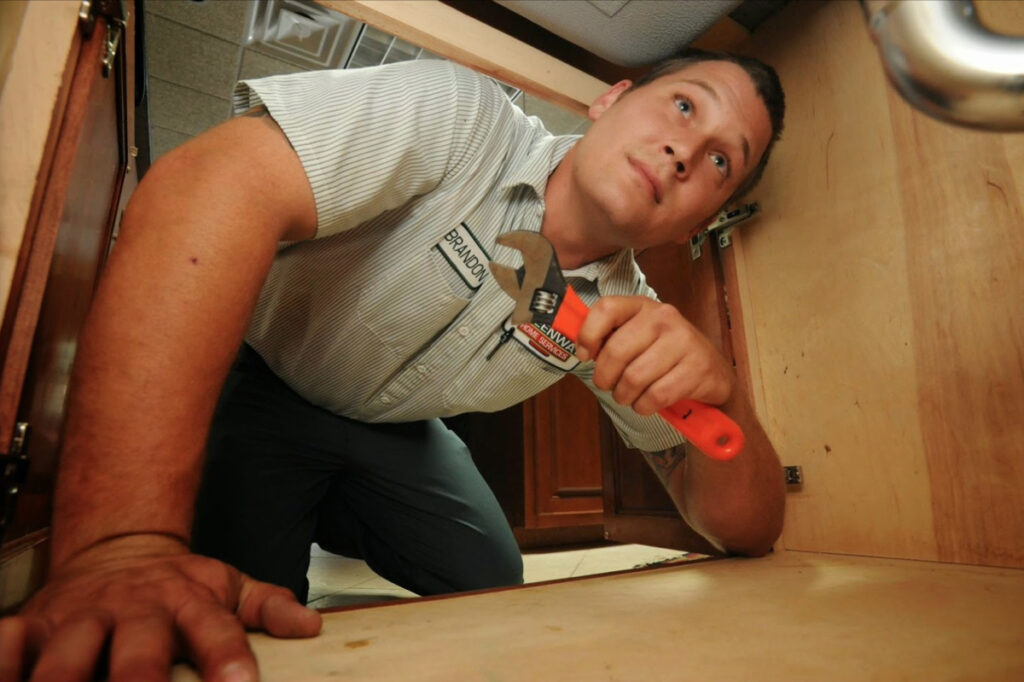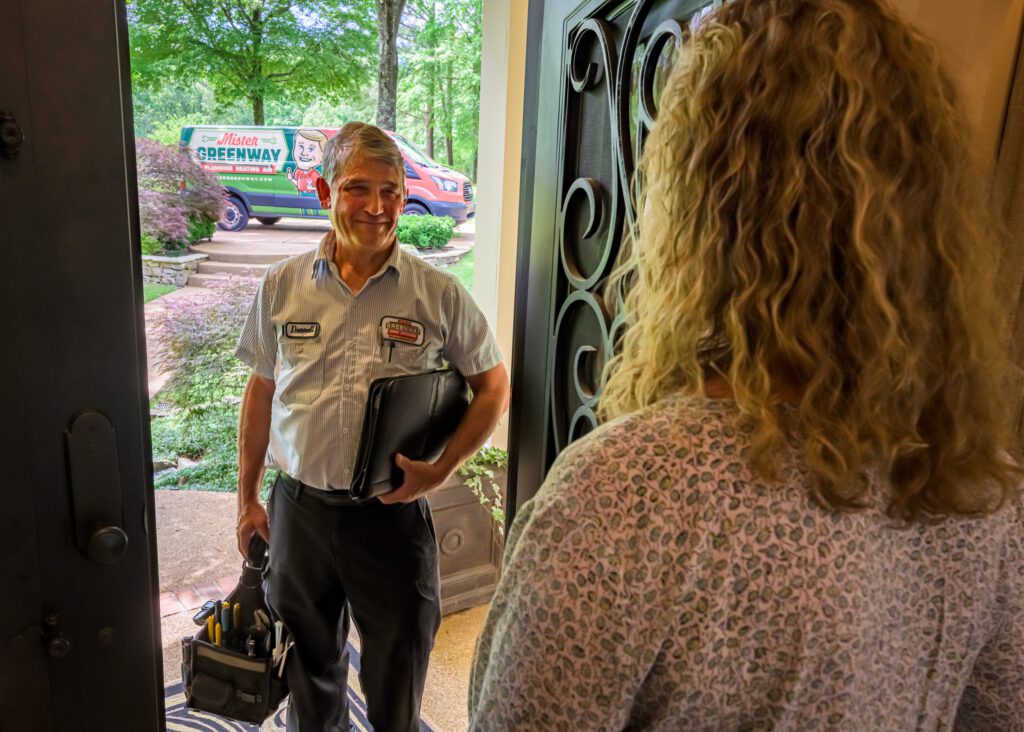Good plumbing is the cornerstone of a safe and sanitary home. If there’s something wrong with your pipes, then you might not be able to flush your toilet, shower, brush your teeth, or enjoy other necessities of everyday life. On top of that, a broken plumbing system can cause costly water damage, and damaged pipes will become more expensive to repair or replace over time. Check out these nine essential plumbing maintenance tips to keep everything flowing properly.

Watch What Goes Down Your Drains
After cooking, you may be tempted to pour the excess oil in your pan down the drain. After all, it’s liquid, so shouldn’t it all simply flow into your septic tank? While grease may be liquid right after cooking, it will quickly become solid as it cools down. As solidified grease gradually accumulates in your plumbing system, you will have less flow, and your septic pipes will eventually burst. Not only is this unsanitary, but it can be a hassle to fix. Thus, instead of dumping cooking grease down the drain, you should let it cool down and scoop it out into your garbage can once it has solidified.
Don’t Use a Chemical Drain Cleaner
Chemical drain cleaners may solve your problem temporarily, but they will eat away at your pipes over time. These compounds work by dissolving whatever matter is clogging your drain. However, since these chemicals are powerful enough to dissolve hair, food, and other obstructions, they will also corrode your pipes. Eventually, your pipes will become brittle and burst. A drain snake is a much better way to dislodge whatever might be stuck in your pipes, and you should call a plumber immediately if a drain snake doesn’t work.
Insulate Pipes in All Climates
Even in warm regions, temperatures occasionally dip below freezing. When that happens, ice builds up in your pipes. Since ice expands, it can place a lot of internal pressure on your pipes, which will lead to water pressure problems, cracks, and leaks. To prevent this, you should insulate all pipes in your basement, crawlspaces, and other unheated areas of your home. You should also insulate any outdoor pipes that lead to sprinklers, hot tubs, or pools.
Check Exposed Pipes
Are any of the exposed pipes in your home warped or discolored? If your pipes don’t look quite right, then you probably have a serious problem on your hands, so it’s a good idea to contact a plumber to perform a more extensive examination. You should also make sure that nothing is hanging from your pipes or putting pressure on them in any way. They aren’t meant to bear any extra weight, so something as simple as a towel can weigh them down and cause damage over time.
Test Your Water Pressure
Water pressure should be even across your home. If one sink releases water at a much lower pressure, then that’s a big indicator that you have a leak on your hands. Such a leak would likely occur somewhere within your walls, which can lead to major water damage over time. The structural integrity of nearby walls, floors, and support beams may decline, and mold will begin to grow if you don’t do anything about it. Also, the water pressure on your water heater’s gauge shouldn’t be any higher than 50 pounds per square. High water pressure may make showering and washing your dishes easier. However, it decreases the lifespan of your pipes and water fixtures, so you should try to keep it between 40 and 50 pounds per square inch at all times.
Scan Your Home for Leaks
Do you have a faucet that won’t stop dripping? Does your toilet’s reservoir keep running long after you’ve flushed it? Your water bill is already expensive, but continuous leaks and unnecessary flow can make it even more costly. Sometimes, the pipes in your walls and under your floors will leak, and this won’t always be as obvious as a leaky faucet. If you notice any discoloration on your ceilings or walls, excess moisture, or a musty smell, then there’s a high chance that you have a leak on your hands, and you’ll have to address it as quickly as possible to avoid further damage.
Don’t Flush the Wrong Things Down the Toilet
Your toilet is only meant to flush three things: urine, feces, and toilet paper. Although paper towels, tissues, and napkins have a similar consistency to toilet paper, they will quickly clog your sewage pipes if you flush them. While wet wipes and similar products may be labeled as toilet-safe, these products are also prone to clogging your sewage lines, so you should just throw them into the garbage bin.
Know Where All Shut-Off Valves Are
Once you detect a leak, you should cut off the water supply to that pipe or faucet immediately. Otherwise, it will continue to leak and cause more damage to your home. Most faucets and water fixtures in your home will have red shut-off levers somewhere nearby. You should make sure that you know where they are so that you can quickly cut the water supply as you wait for help to arrive. The main shut-off valve that cuts your house completely off will likely be somewhere close to your water heater or within a few feet of the water main’s entry point. Most shut-off valves look like a red wheel and are located on the lowest level of your home.
Keep Pipes Free of Obstructions
People often store cleaning chemicals, garbage bags, mop buckets, and other supplies under the sinks in their home. However, this may not be the best idea. When you clutter the space under your sinks with supplies, your pipes won’t be easy to see. In turn, you may be unaware of a leak until it is too late. Instead of storing supplies under your sinks, you should keep them in higher cabinets. Not only will this make leaks and water damage more detectable, but it will also prevent you from having to bend over and wrench your back to access everyday cleaning supplies.

Contact a Plumber Before Things Get Worse
While these simple maintenance tricks will extend the longevity of your pipes, you may still occasionally run into bigger issues. When this happens, you shouldn’t try to tackle the problem alone, and you certainly shouldn’t ignore it. Therefore, if you’ve noticed anything strange about your plumbing system, then you need to call a professional plumbing service before things spiral out of control. While you may be put off by the cost of professional plumbing services, hiring a plumber is much less expensive than getting rid of mold or replacing entire walls and floors.

 Why do pipes freeze?
Why do pipes freeze?